May 30, 2021
In a quiet, rural valley in Calabria, with the southern spine of Italy's Apennine mountains rising in the distance, the latest chapter in the country's long struggle against the Mafia is unfolding inside a sprawling abandoned call centre that has become a bunker courthouse.
The trial began in January and is expected to run as long as two years. It is the largest-ever "maxi-processo," an Italian anti-Mafia trial with dozens of defendants, to take place in Calabria.
It includes 355 defendants accused of everything from membership and collusion with the region's ruthless organized crime syndicate, the 'ndrangheta, to arms trafficking and murder.
Most were arrested in December 2019 in the culmination of a years-long investigation that focused on clans throughout Italy and Europe connected to the Calabrian province of Vibo Valentia. Among those arrested were white-collar workers, including former parliamentarians, mayors and lawyers.
Nicola Gratteri, the 62-year-old head public prosecutor who grew up playing soccer barefoot in the local piazza with boys whom decades later he would send to prison, said for him the biggest significance of the trial is shining light on the spreading "grey zone" of collusion around the 'ndrangheta.
"Mafias are not static structures. They evolve and mutate and increasingly resemble the rest of society," said Gratteri, who for the past 30 years has lived and worked under heavy police protection, now in the main courthouse of Catanzaro, the Calabrian capital a half-hour drive from where the trial is being held in Lamezia Terme.
"What this trial shows is the growing extent to which white-collar workers and professionals are working with the 'ndrangheta."
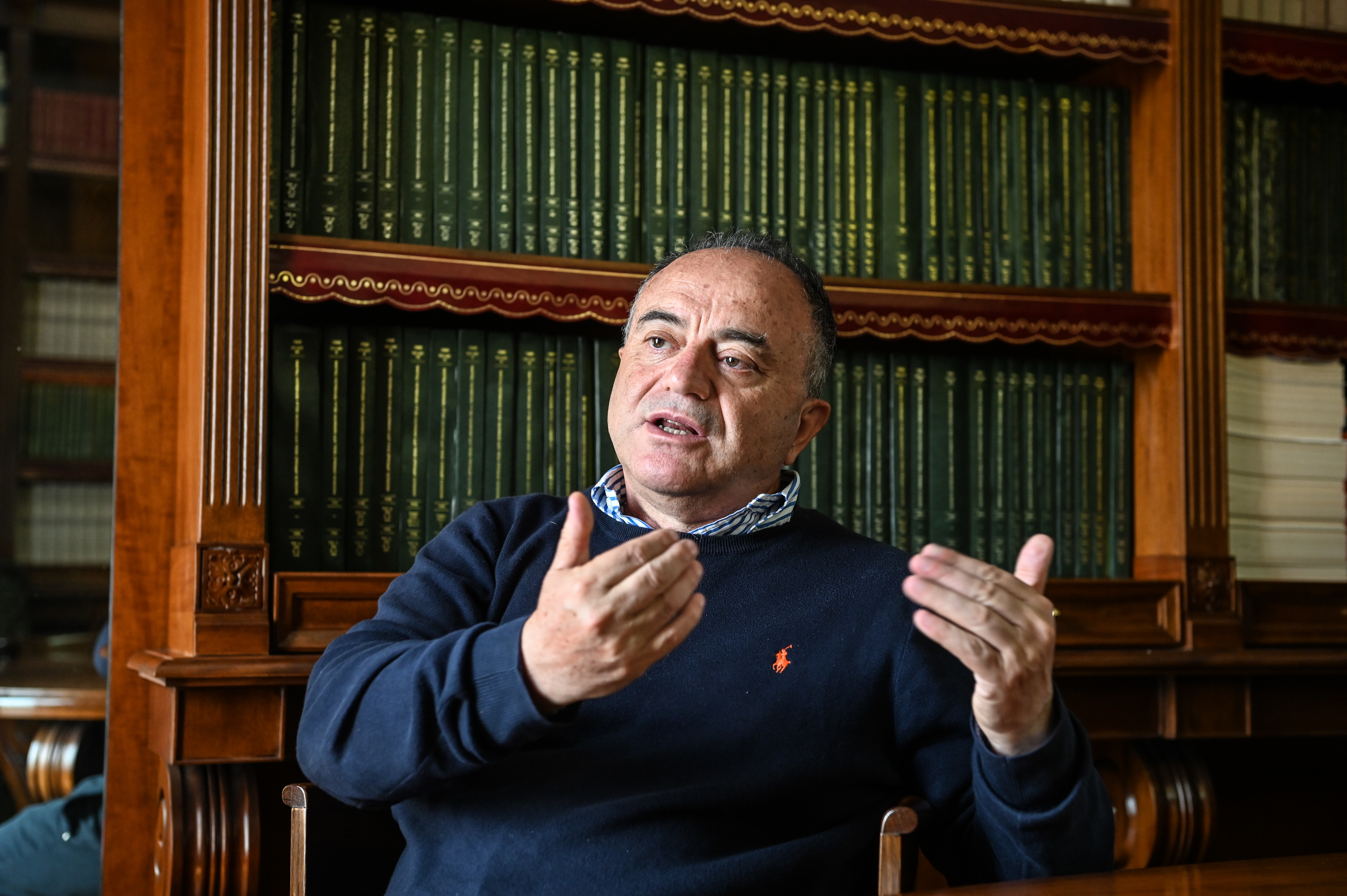
The 'ndrangheta, a name that stems from Greek meaning virtue, only entered the Italian criminal code as a Mafia-type association in 2010, almost 30 years after the Sicilian Cosa Nostra.
When the Cosa Nostra found itself in disarray following the historic maxi-trials of the 1980s, 'ndrangheta clans seized the chance to expand from their main activity of skimming off public contracts and plundering the federally funded regional health-care system into international arms and drug trade. They forged ties with groups in South America to eventually dominate the cocaine market in Europe.
Experts on the 'ndrangheta say the criminal syndicate is now the most financially sophisticated in the West, with capital heavily invested in the world of finance and clan branches firmly ensconced around the globe, including in the Toronto and Montreal areas. Experts estimate the clans' annual income ranges from $50 billion to $85 billion a year.
While the trial is not as historically significant as the Sicilian maxi-trials, for the 'ndrangheta, it involves a high number of "pentiti" or clan members providing testimony against their own.
WATCH | A prosecutor enlists key witnesses to testify against the 'ndrangheta Mancuso clan:
Of the 20,000 or so suspected 'ndrangheta members, Gratteri said that over the years, only several hundred have turned state's witness, a low percentage compared with other Mafias.
High-profile pentiti providing testimony include Emanuele Mancuso, the nephew of Zio or Uncle Luigi Mancuso, one of the most powerful bosses, and Andrea Mantella, who was destined to become the boss of an opposing clan before beginning to collaborate with Gratteri in 2016.
"The 'ndrangheta clans are a closed, controlled, top-down world where those who are below do not know what is happening above, which is different from other Mafias like the Neapolitan Camorra and Sicilian Cosa Nostra," said Gratteri.
The patriarchal clans operate as loosely co-ordinated but autonomous units, with rituals and rites often involving Catholic saints that further cement ties through bloodline or marriage.
The structure makes them more resilient than other Mafias and easier for them to seize new opportunities, even pooling resources at times to expand operations.
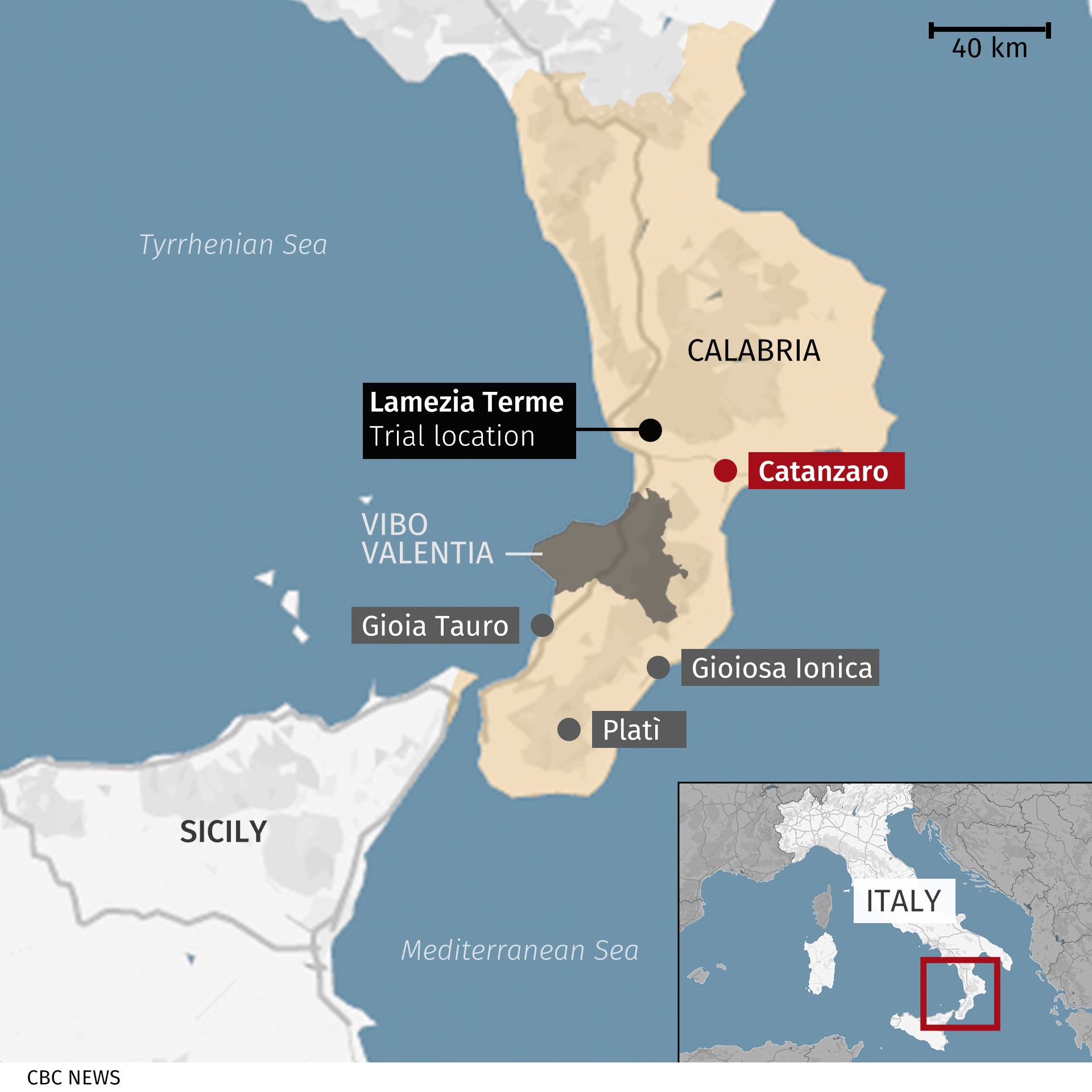
Some, mostly first-born sons, Gratteri said, are born into the 'ndrangheta, with parents holding a baptism of sorts, where the local boss cuts the baby’s fingernails and toenails and pledges him to the clan.
Others take a vow as young as 14.
"The first thing to know is that the 'ndrangheta calls everyone else 'contrasti' — opposers," Gratteri said.
"When a young man aspires to become part of the 'ndrangheta, during his kind of internship, he is called 'an honourable opposer.' At the end of this trial period, there is a dinner where the young men pledge that from this moment on, only the 'ndrangheta counts, that if need be, they will murder their mother and father, brother or sister."
Female members of the clans have been killed, disappeared or "suicided" — in one case forced by family members to drink hydrochloric acid — for everything from being in a relationship with the wrong man to trying to flee with their children.
II.
Murder, drug trafficking and extortion remain the 'ndrangheta crimes that grab most headlines. But a drive through Calabria, the toe of Italy's boot and the country's poorest region, brings into stark relief the distortions, deficiencies and eyesores that Mafia dominance inflicts on public space.
The region is breathtakingly beautiful: a rugged, mostly untouched, mountainous interior forested with oak, pine and fir and rolling hills covered with vineyards, olive and citrus trees, hugged by hundreds of kilometres of sparkling, crystalline water.
But throughout the stunning scenery, there are jarring interruptions. Bridges abruptly end mid-overpass. Half-built constructions stand like starved sentinels around towns. Stretches of highways and main roads are lined with illegal garbage dumps. Bags of household trash are strewn around, along with animal remains — including, along one highway, a burnt cow's head.
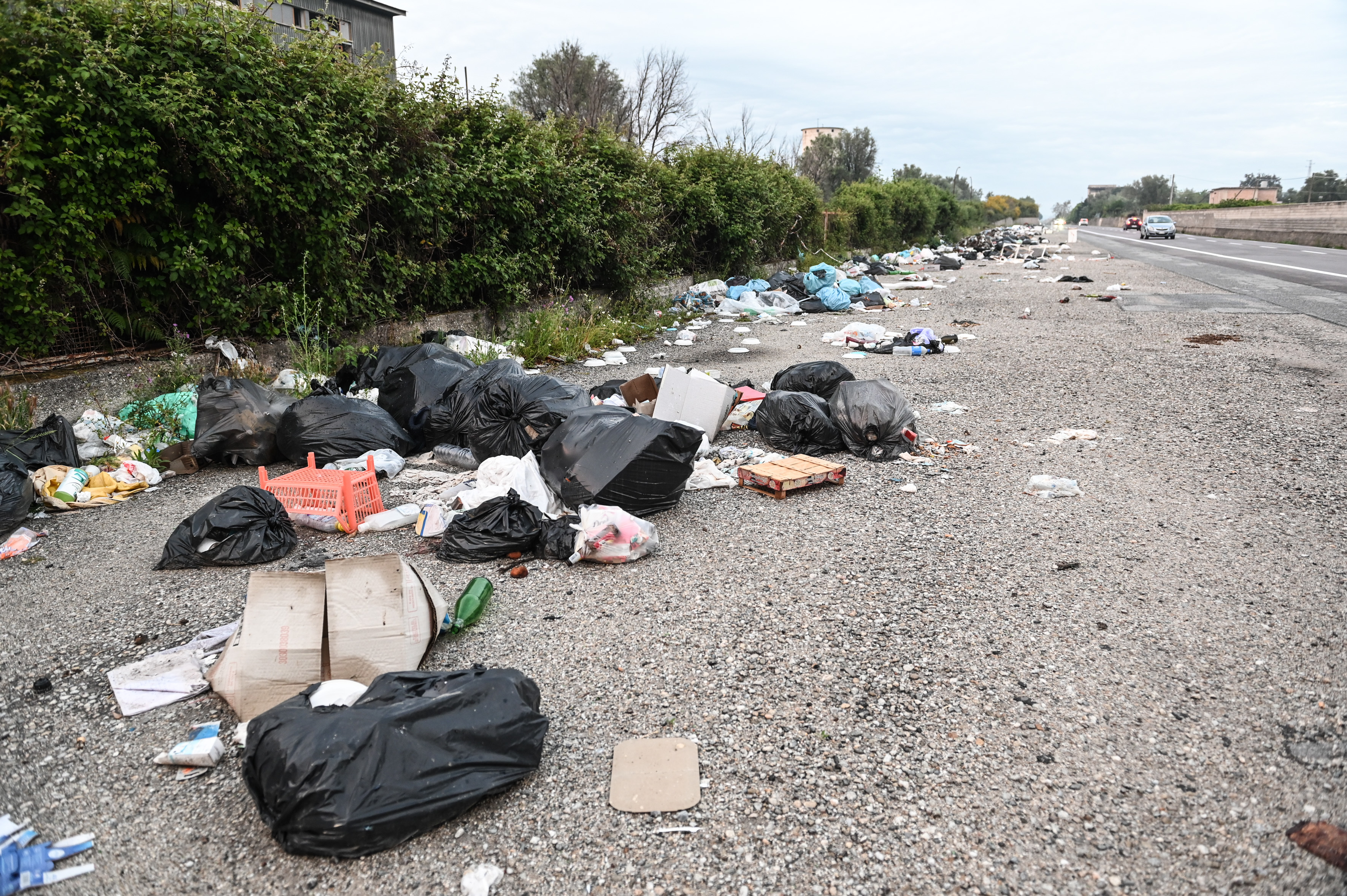
A special squadron of the military carabinieri police called "Cacciatori" — hunters — patrols the rough interior known as the aspromonte, or harsh mountain.
The platoons were formed in the early 1990s to look for family members of industrialists and local dignitaries the 'ndrangheta began kidnapping in the 1970s, but their mission has since shifted in response to the clans’ activities.
"Intimate knowledge of this region is our biggest weapon against the 'ndrangheta," said Cacciatori commander Ivan D’Errico.
WATCH | How a specialized platoon of the Italian military carabinieri looks for hideouts, drugs and weapons:
"After the kidnappings stopped in the '90s when tougher prison sentences were introduced, the 'ndrangheta got into the drug trade and fugitives began hiding in mountain hideouts and bunkers."
Over the past 30 years, D’Errico said, 300 fugitives have been found in hiding, including defendants in the trial now underway.
One underground bunker, discovered during a raid years ago in the Mafia-dominated town of Plati, connects a small apartment building to several others.
When the Cacciatori took me to see the abandoned tunnels, young men on motorbikes swarmed around us, revving their motors and calling out. Stretched across the entrance to the bunker was a dead cat — a message, said the officers, of the town's displeasure at journalists visiting.
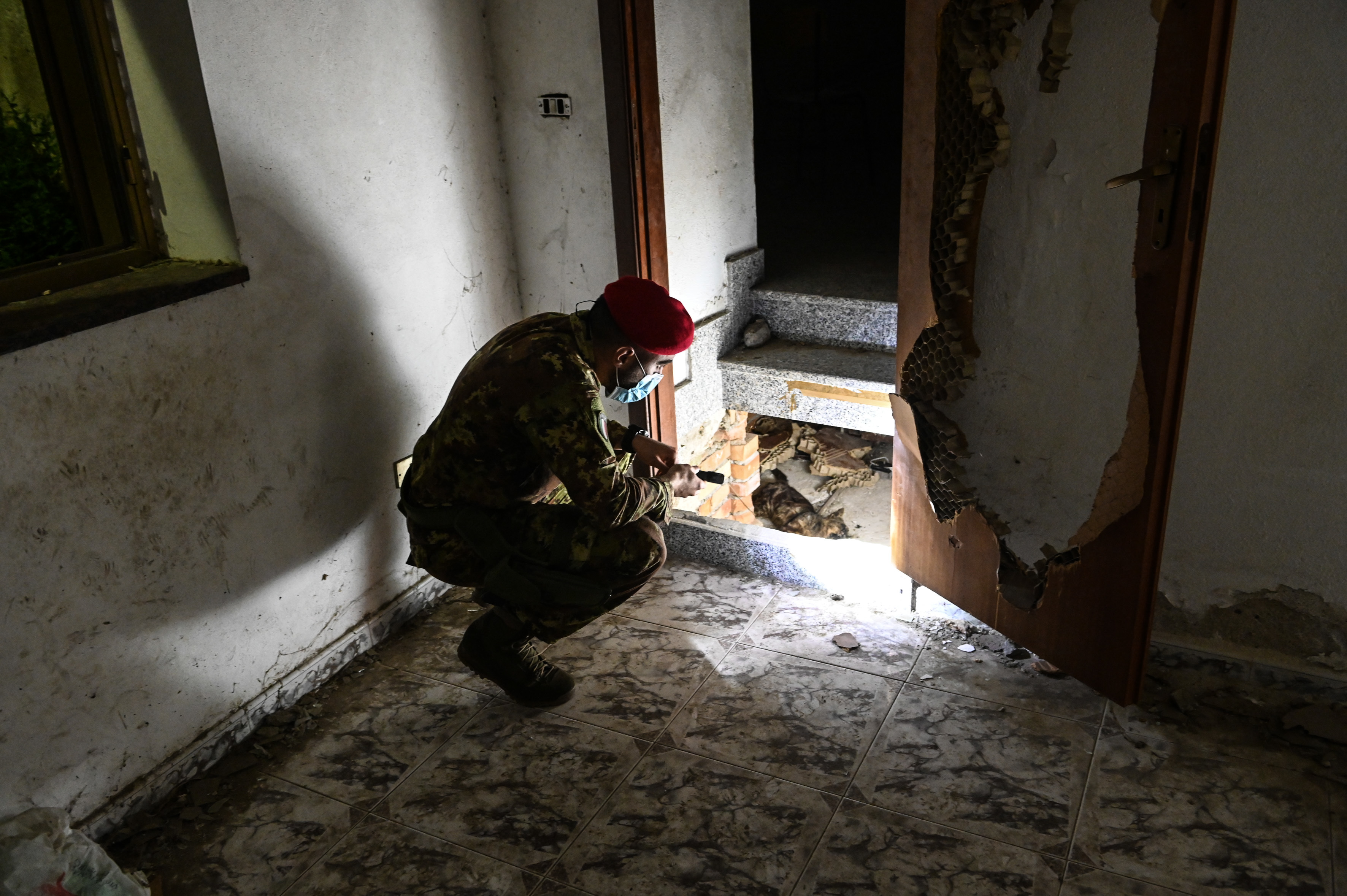
III.
Despite the ‘ndrangheta stranglehold over much of the region, there are tenacious pockets of resistance that date back decades.
Mariaelisa Giocondo, 30, a social worker and the president of Don Milani, a non-profit after-school program in the town of Gioiosa Ionica near the eastern coast of Calabria, is part of one such locus of anti-Mafia activity.
The program offers soccer teams, learning help for kids of ‘ndrangheta families, assistance for teens in trouble with the law and even support for 'ndrangheta widows or women whose husbands are in jail and who want their children to live a different life.
"These are kids who don’t have a childhood, who see their fathers arrested and who have a Mafia culture drummed into them from a very early age," Giocondo said. "They are taught who to show respect to and what words to use, like the Mafia insult 'infame' — vile or villainous — or 'omerta,' " meaning silence or secrecy to cover up for cheating or a crime.
Giocondo describes growing up in Calabria as “suffocating, like there was never enough air to breathe.” It’s a feeling, she said, that came in part from having to pass on her way to school chalk outlines of those gunned down on the streets in the local clan wars at the time.
But, she said, her feeling of suffocation also came from not being able to even visit friends in the next town because there was no public bus or train service.
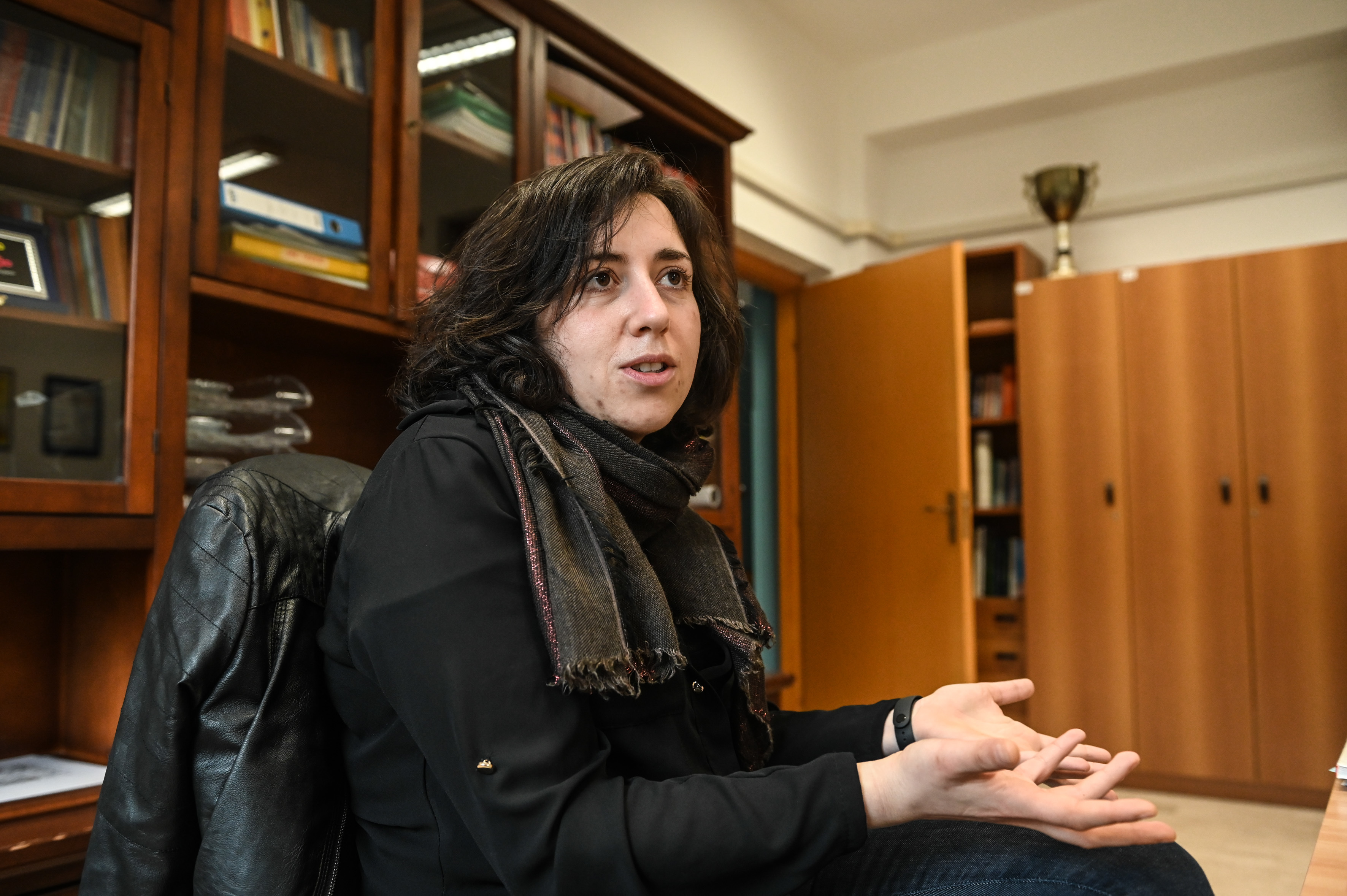
That isolation affects Calabria as a whole, with its striking lack of infrastructure — everything from high-speed trains connecting the region to the rest of the country and modern highways to well-functioning hospitals with care at the same level as the rest of Italy.
"In simple terms, the Mafia culture is a culture of bullying, where the bullies exert their power on every level of society," Giocondo said.
"If I have to get a new ID or health card and I don’t want to wait for hours at town hall, I ask an insider to skip the lineup. When I apply for a job, I don’t get it because I’m the best candidate, but because someone pulled some strings. And when that someone is the 'ndrangheta, this becomes very, very problematic because I have to answer to them."
The patriarchal structure means women’s power is expressed primarily in shaping their children to conform to the Mafia system, she said.
She and Don Milani founder Francesco Rigitano say they try to provide the kids in the program with "antibodies" against the Mafia, as well as a way to read and make choices about their environment — to understand when a club or bar is a money laundering outfit, for instance.
But Rigitano said this is getting harder.
"Before there was black and white, then grey, [and] now you can’t tell, even in our community, our small town, where criminality ends and where it begins."
IV.
For those who take a clear stance against criminality, life is not easier.
Antonino De Masi owns a factory that produces olive harvesting machines off the highway on the outskirts of Gioia Tauro, a Calabrian port town on the Mediterranean renowned as a gateway of cocaine trafficking into Europe.
Armed guards stand at a military checkpoint outside his factory gate. Inside his large, bright office, the walls are lined with awards and plaques in recognition both of his business success and of his Mafia resistance. Two bodyguards stand in the hallway.
Six years ago, De Masi appeared as a witness against an ‘ndrangheta boss who had tried to extort him for hundreds of thousands of euros. In front of a judge, the imprisoned boss vowed to murder De Masi, his wife and three children. The next day, his family moved to northern Italy and all five have since been under 24/7 police protection. Each week, he flies back and forth between Calabria and northern Italy.
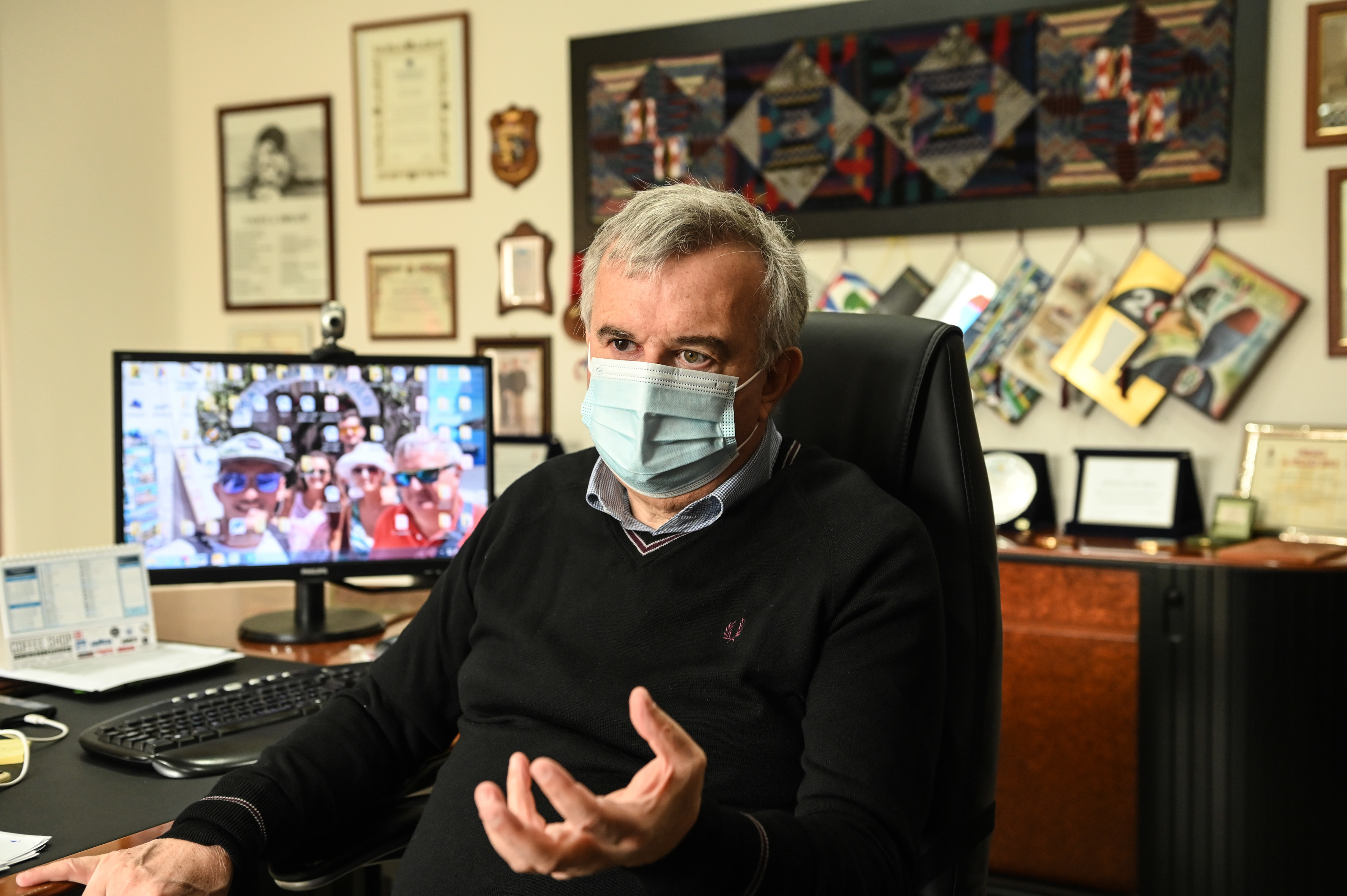
De Masi sifts through the dozens of anonymous extortion letters the family business has received over the decades, some written in formal bureaucratize that would be comical if someone hadn’t set fire to the factory or unloaded 44 bullets from a Kalashnikov into his office.
"Illustrious Friend De Masi, our apologies for disturbing you once again," reads one, "but this letter is to communicate we are following up from last month’s letter to urge you not to repeat your foolish behaviour. This time around we are rather seriously mal-intentioned, so if you would like your factory to properly function, we urge you to pay."
Despite the anti-Mafia accolades on his walls, De Masi said standing up to the 'ndrangheta has been an overwhelmingly lonely experience.
"Sometimes I think the media depiction of me as a hero is a way for Italians to clear their conscience," he said.
"Turning me into a hero implicitly conveys the message that ordinary people cannot do what I do. And that being complicit with the Mafia, pretending not to see what they do and failing to report them, is somehow normal.
"This is a problem for me and this is why I often question what the real effect is that I’m having in this land."
His refusal to pay and being under police protection have meant he has lost family unity — his siblings have separated their parts of the family business from his — and lost friends and support from colleagues.
"My colleagues say to me, 'Why are you doing this? You talk about freedom, but you've lost all your freedom,' " he said. "By denouncing the Mafia, though, I gained an intellectual and moral freedom."
WATCH | Life under police protection:
De Masi’s daughter, Cristina, 19, has also paid a price.
She left Italy last year to study, a way to be free of bodyguards despite the fact that she has to be careful even outside Italy — a reminder of the long tentacles 'ndrangheta clans have throughout the world.
"It’s not that I'm in a different world. People can find me also here," she said during a video call with her father from where she now lives abroad.
She said she is proud of her father's stance and grateful for the dignity it has given her family, along with "the sparkle of hope" it offers for Calabria, but she cannot see a future for herself in the region.
"It's where I grew up, but now I’m used to different realities … bigger than Calabria."
Her brother, Giuseppe, 25, an engineering student back from northern Italy for a few weeks to help out in the office, said it still stings when he hears locals describe him as "infame," because "you talk with the state, the bad part of the region."
But he is more optimistic than his father and sister about the future of Calabria, saying that when he goes to the beach, for instance, young people now come up to him to express support.
"Five, 10 years ago, if you had this situation, you were alone, completely alone," he said. "Now guys come to speak, 'Hello, how are you?' It’s changing…. I am hopeful."
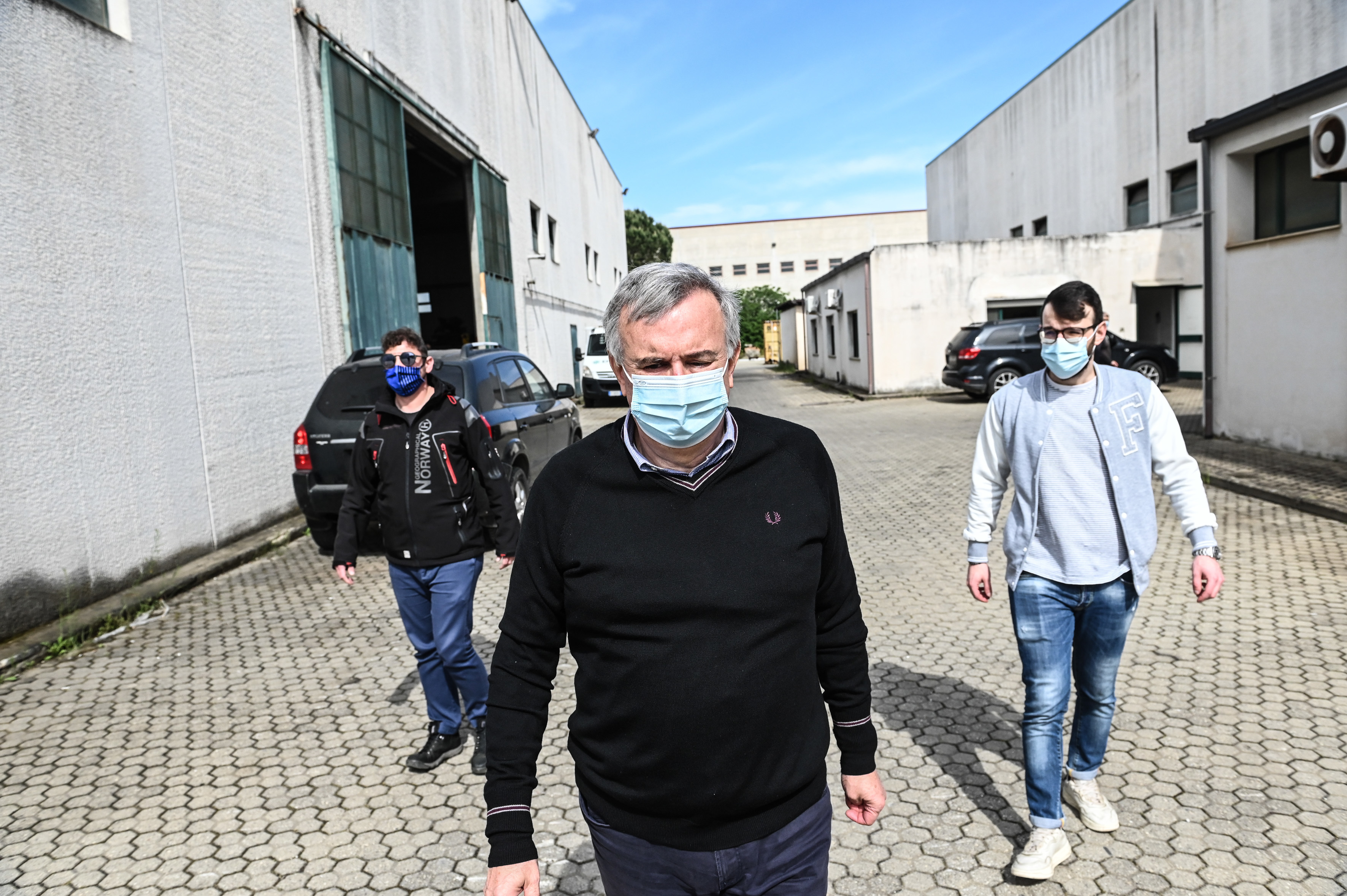
Giuseppe motions outside the window to the orange and olive orchards in the distance, and the mountains beyond, and says his dream is not only for the natural beauty to be preserved, but also that jobs for young people are created in a region where almost 50 per cent of youth are unemployed.
Unlike his sister, he plans on moving back when he graduates to contribute to what he calls "a culture of self-awareness" and to help build a legal economy.
Many in Calabria are pinning their hopes on the almost $300 billion of European Union COVID recovery funds coming to Italy over the next six years. Forty per cent of those funds have been earmarked for development of the southern regions.
That money, however, makes others, especially many in the north of Italy, wary at the opportunity for further grift this could provide the 'ndrangheta.
But Calabrians, including prosecutor Gratteri, say the future of the region hinges on infrastructure development, and failure to invest in Calabria would constitute abandonment of the region by the central government.
"I've met with high-level politicians and told them, 'You take care of coming up with public work projects that will improve the lives of everyday citizens here and we [prosecutors] will take care of the 'ndrangheta,' " said Gratteri.
V.
Back at the after-school program in Gioiosa Ionica, Mariaelisa Giocondo stands chatting with kids making beaded bracelets and earrings for their mothers.
She said when she left Calabria at 17 to study in Rome, the last place she ever expected to find herself living again was here.
But an internship after university at the Don Milani program made her realize that for her region to change, the culture of its inhabitants needs to change from the ground up.
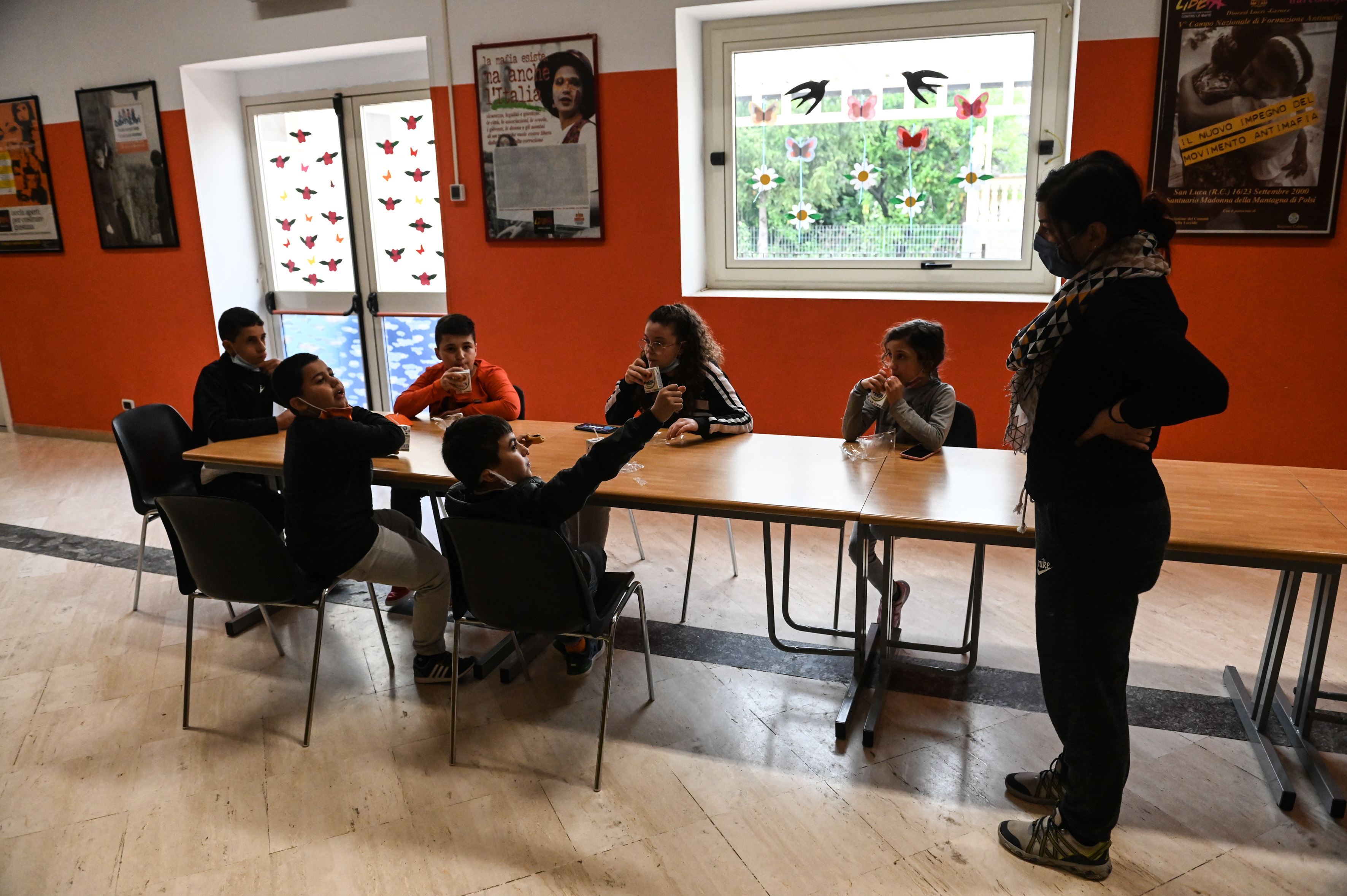
She said she wants to help the next generation of Calabrians breathe in the oxygen that she felt starved of as a teenager.
And to show them the glimmer of another, different world.
"We never know if the seeds we're planting will come to fruition," she said. "But it's important for us to keep sowing."
